
June 6
Birth: Alexandra Feodorovna: Consort of Tsar Nicholas II:
Alexandra Feodorovna was consort of the Russian Czar Nicholas II. Her rule precipitated the collapse of Russia's imperial government. She was murdered, along with her entire family, in 1918. [For further information, click here.]
1875 Birth: Thomas Mann: German essayist, cultural critic, and novelist:

Among Mann's most famous works is Buddenbrooks (1901), which appeared when he was 26. He began writing it during a one-year stay in Italy and completed it in about two and a half years. The book outraged the citizens of Luebeck, who saw it as a thinly veiled account of local incidents and figures, although Mann never mentions the name of the city . . . .
Paul Thomas Mann was born in Luebeck, where he was baptized as a Protestant in St. Mary's Church. . . . . After Mann's father died in 1891, his trading firm was dissolved, and the family moved to Munich. Mann was educated at the Luebeck gymnasium and he also spent some time at the University of Munich. He then worked for the south German Fire Insurance Company for a short period. Mann's career as a writer started in the magazine Simplicissimus. Mann's first book, Der Kleine Herr Friedmann, was published in 1898.
While at university, Mann became immersed in the writings of the philosophers Arthur Schopenhauer and Friedrich Nietzsche as well as in the music of composer Richard Wagner. In Buddenbrooks, Mann's early masterpiece, he used the technique of the leitmotif, which he adapted from Wagner. Mann had started the book in 1897 as a small story about one member of the family. However, the "protracted finger practice with no ulterior advantages" enlarged into a saga of a wealthy Hanseatic family, which declines from strength to decadence. . . . .
After Buddenbrooks, Mann concentrated on short novels or novellas. In 1902 he published Tonio Kroeger, a spiritual autobiography exploring art and discipline . . . . Koengliche Hoheit (1909, Royal Highness) reflected Mann's views of duty and sacrifice. Der Tod In Venedig (1912, Death in Venice), Mann's famous multilayered novella, was inspired by a young, sailor-suited boy, Wladyslaw Moes, to son of Baron Moes, whom the author saw in Venice in 1911. . . . .
During World War I Mann supported the Kaiser's policy and attacked liberalism. In Von Deutscher Republik (1923), as a semi-official spokesman for parliamentary democracy, he called the German intellectuals to support the new Weimar state. After ten years of work Mann completed his second major work, Der Zauberberg (1924, The Magic Mountain), a novel about ideas and of lost humanism. It depicted again a fight between liberal and conservative values, enlightened civilized world and non-rational beliefs. . . . .
Mann's next major work was Joseph Und Seine Brueder (1933-42, Joseph and his Brothers), set in the biblical world . . . .
During the writing process of Joseph and his Brothers the political control in Germany was seized by the Nazis. On Hitler's accession to power, Mann moved to Switzerland, where he edited the literary journal Mass und Wert. He settled finally in the United States in 1936, working among others at the University of Princeton. Lotte in Weimar (1939, The Beloved Returns) focused on the world of Goethe's novel The Sorrows of Young Werther (1774). In 1941 Mann moved to Santa Monica, California. He lived in the U.S. some ten years, but was disappointed with the American persecution of Communist sympathizers . . . .
Mann's last great work was Doktor Faustus (1947), the story of composer Adrian Lewerkuehn and the progressive destruction of German culture in the two World Wars. In the background of the story was the innovative 12-tone music of Arnold Schoenberg. Mann's account of the genesis of Doctor Faustus appeared in 1949. . . . .
After lung cancer operation Mann returned in 1947 to Europe. Demonstratively he avoided Germany and lived mostly in Switzerland, near Zürich, where he died on August 12, 1955.
[For further details, Click here]
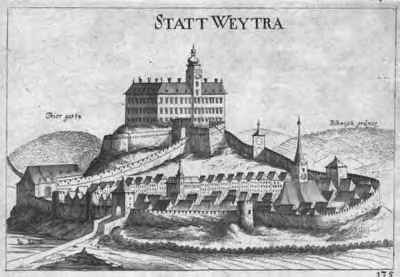
1876 Hitler Family: A notary in Weitra takes the testimony of three illiterate witnesses: 'The undersigned witnesses hereby confirm that Georg Hiedler, who was well know to them, acknowledged paternity of the child Alois, son of Anna Schicklgruber, and they request that his name be entered in the baptismal record.' XXX Josef Romeder, Witness. XXX Johann Breitender, Witness. XXX Englebert Paukh, Witness. See June 7. [For further details, Click here]
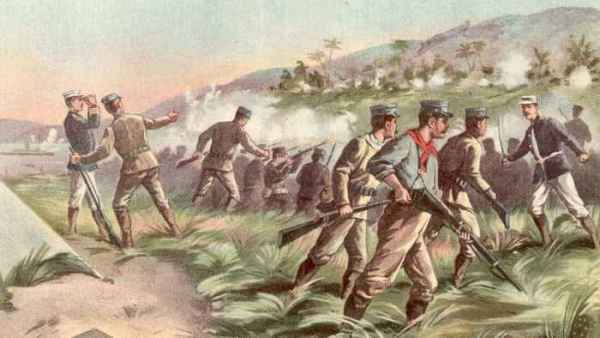
1898 (June 6–10) Spanish-American War: The first US naval attack and subsequent successful landing of US Marines occurs as Guantánamo Bay, Cuba, falls to the US. Note: In 1903 a formalized agreement between the United States and Cuba will be signed leasing Guantánamo Bay to the US for a "coaling and Naval station." (Trask) [See: Countdown to Infamy: Timeline to Pearl Harbor.]

1906 Adolf Hitler sends his best friend, August 'Gustl' Kubizek, a postcard from Vienna depicting the Parliament building designed by one of Hitlers favorite architects, Theophil von Hanson. "To you and your esteemed parents, heartiest good wishes for the holidays and many greetings." [For further details, Click here.]

1915 World War I: List Regiment: Gefreiter Adolf Hitler's 16 Reserve Infantry Regiment occupy a position at Fromelles—pictured above in a drawing by Hitler—which is on a level field with water channels, willow trees and willow stalks, in the distance towards the enemy lines lie an insignificant wood with barbed wire entanglements. Under the direction of their defense-minded commander, Lieutenant General Gustav Scanzoni von Lichtenfels, the regiment works ceaselessly day and night to further fortify their position at Fromelles while fighting off repeated assaults by the enemy. [For further details, Click here.]
1916 World War I: List Regiment: Gefreiter Adolf Hitler endures trench warfare in Flanders (Artois) with 3 Company, 16 Reserve Infantry Regiment. [For further details, Click here.]
1917 World War I: List Regiment: Gefreiter Adolf Hitler's 16th RIR redeploy east of Douai for a period of rest which will extend until June 24. [For further details, Click here.]
1918 World War I: Various:
List Regiment: (June 1-17): The 16th RIR hold the Front at Aisne and the Marne. [For further details, Click here.]
Battle of Belleau Wood begins:
The first large-scale battle fought by American soldiers in World War I begins in Belleau Wood, northwest of the Paris-to-Metz road. [For further details, Click here]

1939 Holocaust: President Roosevelt ignores a telegram sent on behalf of the Jews aboard the SS St. Louis. The ship, with all 930 Jews on board, is forced to return to Europe. [See: Was America Complicit in the Holocaust?]
1940 World War II: France: The Germans break the French line along the Somme between Amiens and the coast.
1941 World War II: It's 'No More Mr. Nice Guy': Adolf Hitler issues the Commissar Decree:

In the battle against Bolshevism, the adherence of the enemy to the principles of humanity or international law is not to be counted on. In particular the treatment of those of us who are taken prisoner in a manner full of hatred, cruelty, and inhumanity can be expected from the political commissars of every kind as the real pillars of opposition. The troops must be aware that:
1. In this battle mercy or considerations of international law with regard to these elements is false. They are a danger to our own safety and to the rapid pacification of the conquered territories.
2. The originators of barbaric, Asiatic methods of warfare are the political commissars. So, immediate and unhesitatingly severe measures must be undertaken against them. They are therefore, when captured either in battle or offering resistance, as a matter of routine to be dispatched by firearms. The following provisions also apply:
2. Political commissars as agents of the enemy troops are recognizable from their special badge: a red star with a golden woven hammer and sickle on the sleeves . . . . They are to be separated from the prisoners of war immediately, i.e. already on the battlefield. This is necessary, in order to remove from them any possibility of influencing the captured soldiers. These commissars are not to be recognized as soldiers; the protection due to prisoners of war under international law does not apply to them. When they have been separated, they are to be finished off.
3. Political commissars who have not made themselves guilty of any enemy action nor are suspected of such should be left unmolested for the time being. It will only be possible after further penetration of the country to decide whether remaining functionaries may be left in place or are to be handed over to the Sonderkommandos. The aim should be for the latter to carry out the assessment. In judging the question "guilty or not guilty," the personal impression of the attitude and bearing of the commissar should as a matter of principle count for more than the facts of the case which it may not be possible to prove.
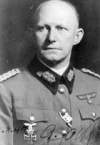
From Genaral Alfred Jodl's IMT testimony:
I did not participate in preparing this draft. I was not concerned with prisoners of war nor with questions of martial law at that time. But the draft was submitted to me before it was transmitted to Field Marshal Keitel. The intention of the Fuehrer that was set forth in this draft was rejected unanimously by all soldiers. Very heated discussions took place about this also with the Commander-in-Chief of the Army. This resistance ended with the characteristic sentence by the Fuehrer: "I cannot demand that my generals should understand my orders, but I do demand that they follow them." Now, in this case, by my notation I wanted to indicate to Field Marshal Keitel a new way by which one might possibly still circumvent this order which had been demanded . . . .
It is correct that, because of his ideological opposition to Bolshevism, the Fuehrer counted on the possible authorization of the commissars [decree] as a certainty. He was confirmed in this belief, and gave his reasons by saying: "I have carried on the war against Communism for 20 years. I know Communism, but you do not know it." I must add that we as well were, of course, to a certain extent under the influence of what had been written in the literature of the entire world about Bolshevism since 1917. We also had had some experiences, for example, the [Bavarian Soviet] Republic in Munich. Despite that, I was of the opinion that first of all we should wait and see whether the [commissars] would actually act as the Fuehrer expected them to act; and if his suspicions were confirmed, we could then make use of reprisals. That was what I meant by my notation in the margin . . . .
I have only to add that the Fuehrer said on that occasion: "If you do not believe what I am telling you, then read the reports from Counterintelligence which we have received regarding the behavior of the Russian commissars in the occupied Baltic states. Then you will get a picture of what can be expected from these [commissars]."
1942 World War II: Japanese forces lose the decisive Battle of Midway:
The last air attacks of the battle took place on 6 June when dive bombers from Enterprise and Hornet bombed and sank heavy cruiser Mikuma, and damaged destroyers Asashio and Arashio,as well as the cruiser Mogami. At Admiral Spruance's expressed orders, issued because of the destruction of three torpedo squadrons on 4 June, "Devastators" from VT-6 that accompanied the strike did not attack because of the threat to them from surface antiaircraft fire. After recovering these planes, TF 16 turned eastward and broke off contact with the enemy. COMINT intercepts over the following two days documented the withdrawal of Japanese forces toward Saipan and the Home Islands.
Meanwhile, on the 6th, Japanese submarine I-168 interrupted the U.S. salvage operations, torpedoing Yorktown and torpedoing and sinking destroyer USS Hammann (DD-412). Screening destroyers depth-charged I-168 but the Japanese submarine escaped destruction. Yorktown, suffering from numerous torpedo hits, finally rolled over and sank at dawn on 7 June . . . .
Thanks to American signals intelligence, judicious aircraft carrier tactics, and more than a little luck, the U.S. Navy had inflicted a smashing defeat on the Japanese Navy. Although the performance of the three American carrier air groups would later be considered uneven, their pilots and crew had won the day through courage, determination, and heroic sacrifice. The Japanese lost the four large carriers that had attacked Pearl Harbor, while the Americans only lost one carrier. More importantly, the Japanese lost over one hundred trained pilots, who could not be replaced. Recognizing this defeat for what it was, Admiral Nagumo's Chief of Staff later wrote: "I felt bitter, I felt like swearing." In a larger strategic sense, the Japanese offensive in the Pacific was derailed and their plans to advance on New Caledonia, Fiji, and Samoa postponed. The balance of sea power in the Pacific shifted from the Japan to an equity between America and Japan. Soon after the Battle of Midway the U.S. and their allies would take the offensive in the Pacific.
1944 World War II: D-Day:
Although the term D-Day is used routinely as military lingo for the day an operation or event will take place, for many it is also synonymous with June 6, 1944, the day the Allied powers crossed the English Channel and landed on the beaches of Normandy, France, beginning the liberation of Western Europe from Nazi control during World War II. Within three months, the northern part of France would be freed and the invasion force would be preparing to enter Germany, where they would meet up with Soviet forces moving in from the east.
With Hitler's armies in control of most of mainland Europe, the Allies knew that a successful invasion of the continent was central to winning the war. Hitler knew this too, and was expecting an assault on northwestern Europe in the spring of 1944. He hoped to repel the Allies from the coast with a strong counterattack that would delay future invasion attempts, giving him time to throw the majority of his forces into defeating the Soviet Union in the east. Once that was accomplished, he believed an all-out victory would soon be his.
On the morning of June 5, 1944, U.S. General Dwight D. Eisenhower, the supreme commander of Allied forces in Europe gave the go-ahead for Operation Overlord, the largest amphibious military operation in history. On his orders, 6,000 landing craft, ships and other vessels carrying 176,000 troops began to leave England for the trip to France. That night, 822 aircraft filled with parachutists headed for drop zones in Normandy. An additional 13,000 aircraft were mobilized to provide air cover and support for the invasion.
By dawn on June 6, 18,000 parachutists were already on the ground; the land invasions began at 6:30 a.m. The British and Canadians overcame light opposition to capture Gold, Juno and Sword beaches; so did the Americans at Utah. The task was much tougher at Omaha beach, however, where 2,000 troops were lost and it was only through the tenacity and quick-wittedness of troops on the ground that the objective was achieved. By day's end, 155,000 Allied troops—Americans, British and Canadians—had successfully stormed Normandy’s beaches.
For their part, the Germans suffered from confusion in the ranks and the absence of celebrated commander Field Marshal Erwin Rommel, who was away on leave. At first, Hitler, believing that the invasion was a feint designed to distract the Germans from a coming attack north of the Seine River, refused to release nearby divisions to join the counterattack and reinforcements had to be called from further afield, causing delays. He also hesitated in calling for armored divisions to help in the defense. In addition, the Germans were hampered by effective Allied air support, which took out many key bridges and forced the Germans to take long detours, as well as efficient Allied naval support, which helped protect advancing Allied troops.
Though it did not go off exactly as planned, as later claimed by British Field Marshal Bernard Montgomery—for example, the Allies were able to land only fractions of the supplies and vehicles they had intended in France—D-Day was a decided success. By the end of June, the Allies had 850,000 men and 150,000 vehicles in Normandy and were poised to continue their march across Europe.
The heroism and bravery displayed by troops from the Allied countries on D-Day has served as inspiration for several films, most famously The Longest Day (1962) and Saving Private Ryan (1998). It was also depicted in the HBO mini-series Band of Brothers (2001). (History.com) [See: Wunderwaffen: Hitler's Deception and the History of Rocketry.]
Churchill speaks in the House of Commons:

I have also to announce to the House that during the night and the early hours of this morning the first of the series of landings in force upon the European Continent has taken place. In this case the liberating assault fell upon the coast of France. An immense armada of upwards of 4,000 ships, together with several thousand smaller craft, crossed the Channel. Massed airborne landings have been successfully effected behind the enemy lines, and landings on the beaches are proceeding at various points at the present time. The fire of the shore batteries has been largely quelled. The obstacles that were constructed in the sea have not proved so difficult as was apprehended. The Anglo-American Allies are sustained by about 11,000 firstline aircraft, which can be drawn upon as may be needed for the purposes of the battle. I cannot, of course, commit myself to any particular details. Reports are coming in in rapid succession. So far the Commanders who are engaged report that everything is proceeding according to plan. And what a plan! This vast operation is undoubtedly the most complicated and difficult that has ever taken place. It involves tides, wind, waves, visibility, both from the air and the sea standpoint, and the combined employment of land, air and sea forces in the highest degree of intimacy and in contact with conditions which could not and cannot be fully foreseen . . . .
I have been at the centres where the latest information is received, and I can state to the House that this operation is proceeding in a thoroughly satisfactory manner. Many dangers and difficulties which at this time last night appeared extremely formidable are behind us. The passage of the sea has been made with far less loss than we apprehended. The resistance of the batteries has been greatly weakened by the bombing of the Air Force, and the superior bombardment of our ships quickly reduced their fire to dimensions which did not affect the problem. The landings of the troops on a broad front, both British and American- -Allied troops, I will not give lists of all the different nationalities they represent-but the landings along the whole front have been effective, and our troops have penetrated, in some cases, several miles inland. Lodgments exist on a broad front.
The outstanding feature has been the landings of the airborne troops, which were on a scale far larger than anything that has been seen so far in the world. These landings took place with extremely little loss and with great accuracy. Particular anxiety attached to them, because the conditions of light prevailing in the very limited period of the dawn-just before the dawn-the conditions of visibility made all the difference. Indeed, there might have been something happening at the last minute which would have prevented airborne troops from playing their part. A very great degree of risk had to be taken in respect of the weather. . . . .
The airborne troops are well established, and the landings and the follow-ups are all proceeding with much less loss-very much less-than we expected. Fighting is in progress at various points. We captured various bridges which were of importance, and which were not blown up. There is even fighting proceeding in the town of Caen, inland. But all this, although a very valuable first step-a vital and essential first step-gives no indication of what may be the course of the battle in the next days and weeks, because the enemy will now probably endeavour to concentrate on this area, and in that event heavy fighting will soon begin and will continue without end, as we can push troops in and he can bring other troops up. It is, therefore, a most serious time that we enter upon. Thank God, we enter upon it with our great Allies all in good heart and all in good friendship.
Churchill to Stalin:
Everything (Overlord) has started well. The mines, obstacles, and land batteries have been largely overcome. The air landings were very successful, and on a large scale. Infantry landings are proceeding rapidly, and many tanks and self-propelled guns are already ashore. Weather outlook moderate to good.
Stalin to Churchill:

I have received your communication about the success of 'Overlord' operations. It gives joy to all of us and hope of further successes. The summer offensive of Soviet forces, organized in accordance with the agreement at the Teheran Conference, will begin towards the middle of June on one of the most important sectors of the front. The general offensive of the Soviet forces will develop by stages by means of the successive bringing of armies into offensive operations. At the end of June and during July offensive operations will become a general offensive of the Soviet forces. I shall not fail to inform you in due course of the progress of offensive operations.
1944 Holocaust: The imprisoned Jews of Crete, 400 Greek hostages, and 300 Italian prisoners-of-war are put on a ship at Heraklion and sent 120 miles across the Aegean Sea, where the ship is deliberately sunk. All prisoners on board are drowned. Only seven Jews from Crete survive the war, in hiding. All 1,800 Jews on the island of Corfu, in the Ionian Sea, are seized by the Gestapo. (THP)
Holocaust: Research:
Mengele begins having his Jewish slave-assistant, Dr. Nyiszli, send large quantities of scientific material to Professor von Vershuer at the Kaiser Wilhelm Institute of Anthropology in Berlin. This material includes eyes from murdered Gypsies, internal organs from murdered children, the skeletons of two murdered Jews, and sera from twins infected with typhoid by Mengele. (THP)
1946 Nuremberg Tribunal: Alfred Jodl continues his testimony:
DR. NELTE: Yesterday, in answer to a question by Dr. Stahmer, you spoke about the dispute on the occasion of the 80 RAF officers who escaped. In order to clarify this question, which weighs heavily against Field Marshal Keitel, I should like to know the following: Did you hear that Keitel objected violently because the recaptured RAF officers were turned over to Himmler, that is, to the Gestapo?
JODL: When I stood at the curtain for those 1 or 2 minutes, I heard the Fuehrer say first of all: "That is unheard of. That is the tenth time that dozens of officer prisoners have escaped. These officers are an enormous danger. You don't realize"—meaning Keitel—"that in view of the 6 million foreign people who are prisoners and workers in Germany, they are the leaders who could organize an uprising. That is the result of this careless attitude of the commandants. These escaped Air Force officers are to be turned over to Himmler immediately." And then I heard Field Marshal Keitel answer: "My Fuehrer, some of them have already been put back into the camp. They are prisoners of war again. I cannot turn them over." And the Fuehrer said, "Very well, then they can stay there." That is what I heard with my own ears at that moment, until a telephone conversation called me away again.
DR. NELTE: Afterwards did you speak again with Field Marshal Keitel about this incident? JODL: We drove back to Berchtesgaden together from the Berghof. Field Marshal Keitel was beside himself, for on the way up he had told me that he would not report the escape of these fliers to the Fuehrer. He hoped that on the next day he would have them all back. He was furious with Himmler, who had immediately reported it to the Fuehrer. I told him that if the Fuehrer, in view of the total situation in Germany, saw such a great danger in the escape of foreign officers, then England should be notified so that the order might be rescinded-all officers who were prisoners had to make an attempt to escape. I must say openly that at this moment neither of us had any thought that these recaptured fliers might be shot. For they had done nothing except escape from a camp, which German officers also done dozens of times. I imagined that he wanted to remove them from the disciplinary action of the Army, which certainly, in his opinion, would be far too lenient, and wanted to have them work as punishment for some time in a concentration camp under Himmler. That is what I imagined.
DR. NELTE: In any case, in your presence and in your hearing, Hitler's orders to Himmler to shoot these officers were not issued? JODL: I know that with absolute certainty for I know how I felt when I suddenly received the news that they had been shot. [For the full text of today's proceedings, Click here.]
1949 George Orwell's Nineteen Eighty-four is published:
On this day, George Orwell's novel of a dystopian future, Nineteen Eighty-four, is published. The novel's all-seeing leader, known as "Big Brother," becomes a universal symbol for intrusive government and oppressive bureaucracy. [For further details, Click here]
1965 Spandau Prison: From Spandau: The Secret Diaries, by Albert Speer: A few days ago [Baldur von] Schirach returned from the hospital. He reported on his first meeting with Germans in eighteen years. The doctors were extremely constrained, he said; curious nurses and other staff members had posted themselves in hallways, and he had been looked at rather like a fabulous beast than with sympathy. (Speer II) 1985 Josef Mengele: Identification of remains:
In the immediate postwar, Mengele found himself in U.S. custody. Unaware that Mengele's name already stood on a list of wanted war criminals, however, U.S. officials quickly released him. From the summer of 1945 until spring 1949, the physician, under false papers, worked as a farmhand near Rosenheim, Bavaria. At that time, his prosperous family aided his emigration to South America. Mengele settled in Argentina.
As his crimes had been well documented before the International Military Tribunal (IMT) and other postwar courts, West German authorities issued a warrant for Mengele's arrest in 1959, and a request for extradition in 1960. Alarmed by the capture of Adolf Eichmann in Buenos Aires in that same year, Mengele moved to Paraguay and then to Brazil, spending the last years of his life near Sao Pãolo. In declining health, Mengele suffered a stroke while swimming at a vacation resort near Bertioga, Brazil, on February 7, 1979, and drowned. He was buried in a suburb of Sao Pãolo under the fictive name "Wolfgang Gerhard."
In 1985, German police, working on evidence they had recently confiscated from a Mengele family friend in Günzburg, located Mengele's grave and exhumed his corpse. Brazilian forensic experts thereafter positively identified the remains as Josef Mengele. In 1992, DNA evidence confirmed this conclusion. Mengele had eluded his captors for 34 years.
In 1985, the German police raided Hans Sedlmeier's house in Guenzburg and seized address books, letters, and papers hinting at the grave in Embu. Mengele was exhumed on 6 June 1985 and identified with high probability by forensic experts from UNICAMP. Rolf Mengele issued a statement saying that he "had no doubt it was the remains of his father" Everything was kept quiet "to protect those who knew him in South America," Rolf said. In 1992, a DNA test confirmed Mengele's identity. He had evaded capture for 34 years. After the exhumation, the São Paulo Institute for Forensic Medicine stored his remains and attempted to repatriate them to the remaining Mengele family members. The bones have remained in the custody of Dr. Rubens Maluf, owing to the family's refusal to accept them.
[For further details, Click here]
1991 Rudolf Hess:
The Soviet KGB release 'secret documents' from 1941 that are said to show that Rudolph Hess, Hitler's deputy, had been lured to the Duke of Hamilton's estate by the British.
1994 D-Day:
National leaders and elderly World War II veterans commemorate the 50th anniversary.
1999 D-Day: US President Bill Clinton and other dignitaries from around the world visit Normandy, France. Many D-Day veterans join them to commemorate the anniversary of Operation Overlord and to pay respect to the thousands who died there in World War II.
Edited by Levi Bookin (Copy editor) Click to join 3rdReichStudies Disclaimer: This site includes diverse and controversial materials—such as excerpts from the writings of racists and anti-Semites—so that its readers can learn the nature and extent of hate and anti-Semitic discourse. It is our sincere belief that only the informed citizen can prevail over the ignorance of Racialist "thought." Far from approving these writings, this site condemns racism in all of its forms and manifestations. 
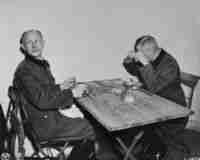

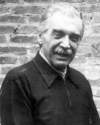
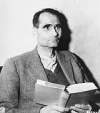
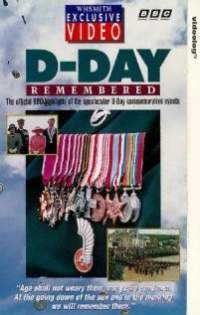
levi.bookin@gmail.com










Fair Use Notice: This site may contain copyrighted material the use of which has not always been specifically authorized by the copyright owner. We are making such material available in our efforts to advance understanding of historical, political, human rights, economic, democracy, scientific, environmental, and social justice issues, etc. We believe this constitutes a "fair use" of any such copyrighted material as provided for in section 107 of the US Copyright Law. In accordance with Title 17 U.S.C. Section 107, the material on this site is distributed without profit to those who have expressed a prior interest in receiving the included information for research and educational purposes. If you wish to use copyrighted material from this site for purposes of your own that go beyond 'fair use', you must obtain permission from the copyright owner.
Please Note: The list-owner and moderators of 3rdReichStudies are not responsible for, and do not necessarily approve of, the random ads placed on our pages by our web server. They are, unfortunately, the price one pays for a 'free' website.